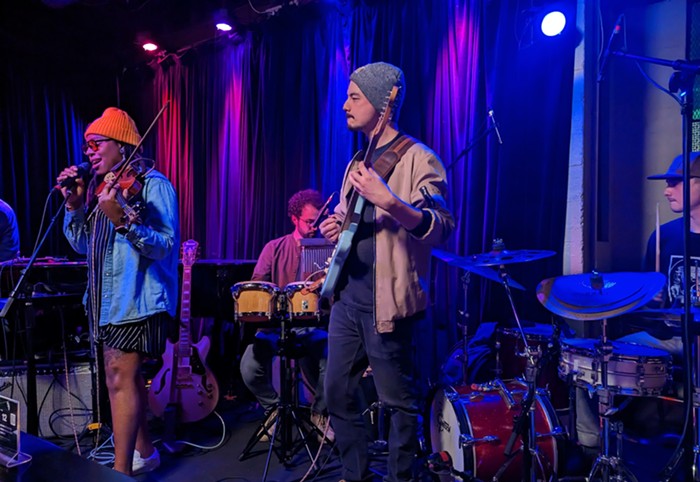DATING BACK to the year 2004, there has been a place of worship on a modest parcel of land in Suffolk, England. Situated under the narrow steeple of St. Andrew's Church in the tall grass is a tombstone engraved with these words: "Teenage dreams so hard to beat." This is the final resting spot of the last great DJ we will ever know, John Peel. Of the millions upon millions of lyrics that passed through Peel's headphones during his glorious 37-year run as the ultimate tastemaker behind the mic at the BBC, it was those six words that he had etched as his legacy.
The lyrics that make up Peel's epitaph stem from the Undertones' "Teenage Kicks," a song so utterly timeless and perfect in its naïve simplicity that still sounds as relevant today as it first did in 1978, when it landed in Peel's hands as a demo cassette postmarked from Derry, Ireland. At the time the Undertones were still taking shape—five mates from Northern Ireland who were as directionless as most bands tend to be in their formative years.
As the long shadow of punk rock crossed into the provinces, the Undertones found their calling. While their vitriolic peers made anarchy into a chorus, the Undertones took to the genre's economic song lengths and welcomed the simplicity of punk rock's earliest days. Even more so than the Sex Pistols and their ilk, the Undertones had a justifiable reason to channel their anger into three-chord anthems. They were five dead-end teens marooned beneath the crown's thumb during the height of Northern Ireland's turbulent "The Troubles" era. Yet they never bothered putting that anger into their songs.
Instead the Undertones wrote songs about a topic of greater concern: girls. Oddly enough, the two most common female characters in UK punk, Margaret Thatcher and the queen, never made an appearance in their liner notes. Instead the Undertones were content to match their stateside peers the Ramones in mastering the concise pop-punk formula decades before other bands joined the fray. Championed heavily by Peel, the band's Teenage Kicks EP and eponymous debut still hold up, 30-plus years after they first graced turntables the world over. Frontman Feargal Sharkey spouted lyrics in succinct, nervous bursts, perfectly capturing the awkwardness of the abrupt transition between youth and adulthood. Songs like "Get Over You" and "Teenage Kicks" are carefree odes to 'round-the-way lasses, while the sunny "Here Comes the Summer" is a punk rock tourist, a bubbly '50s pop number unable to mask its warm, wholesome nature.
Like most reunited punk acts, the modern incarnation of the Undertones only somewhat resembles their former selves. Sharkey left during the band's initial split in 1983 and never looked back. Ironically, the man who was once the face of a struggling punk band now resides as the CEO of industry umbrella group UK Music, and has become one of the most powerful figures in European music. His perfunctory replacement, Paul McLoone, hits all the right notes and has fronted the band for a longer stretch (a dozen years) than Sharkey ever did—unless you caught the Undertones opening for the Clash in '79, you probably wouldn't even notice the switch. (For those who care about such things, primary songwriter John O'Neill is still with the band.)
Thanks to a new generation of followers and those that never left their side, the Undertones are the recipients of a well-deserved second act. As the band prepares to make their first-ever appearance in Portland, it's evident that their biggest fan got it right; after all these years, it's still hard to beat those teenage dreams.



















